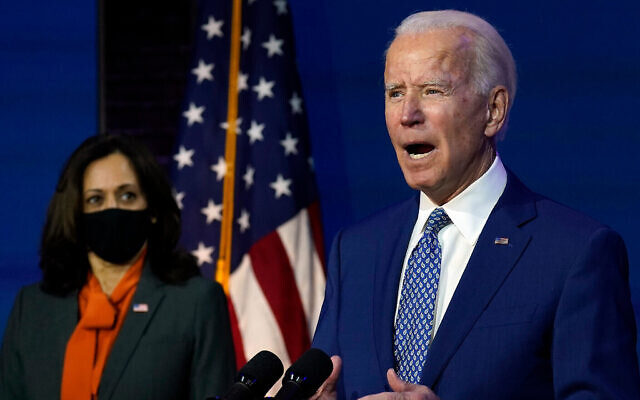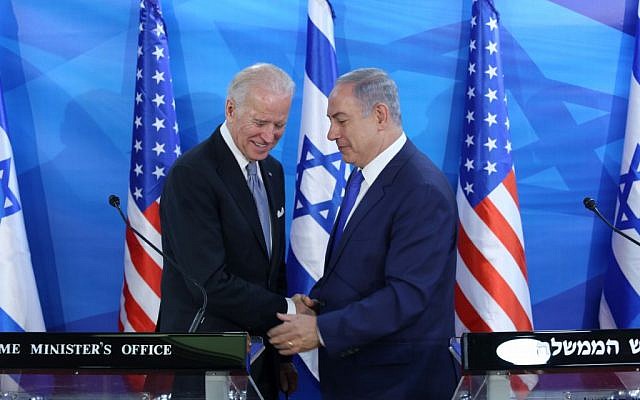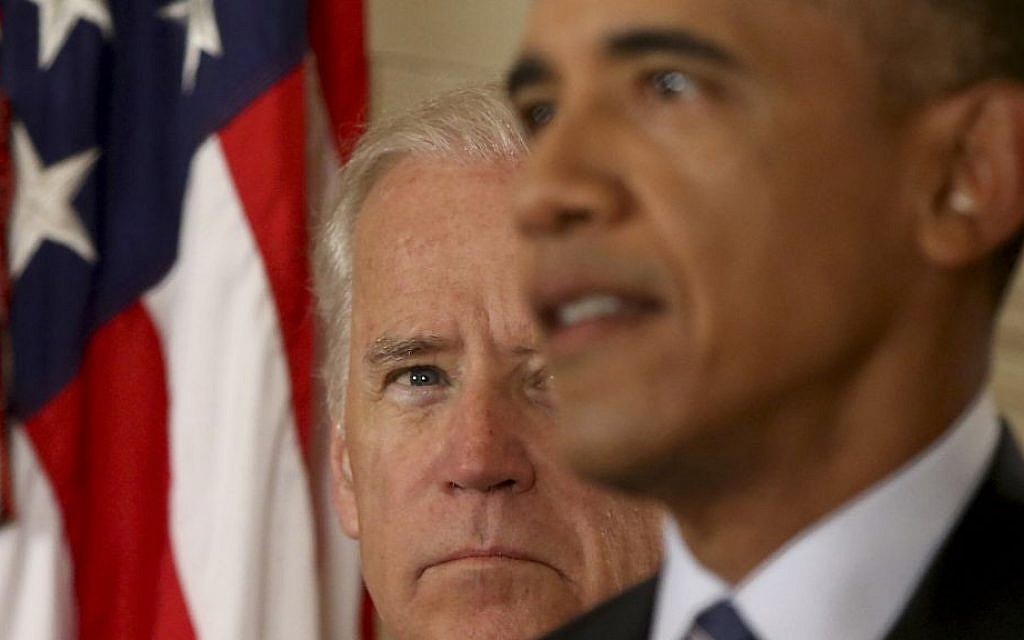Israel, Iran and the region: The President’s Middle East outlook
Biden will not return to the foreign policy of the Obama era, Executive Council of Australian Jewry co-CEO Peter Wertheim says.

A BIDEN administration will not mean a return to the foreign policy of the Obama era, Executive Council of Australian Jewry co-CEO Peter Wertheim has suggested.
The inauguration of President Joe Biden and Vice-President Kamala Harris was scheduled to take place at 4am this morning (Thursday) AEDT, making him the 46th President of the United States.
Biden succeeds Donald Trump, whose administration claimed some significant foreign policy achievements, including moving the US embassy to Jerusalem and presiding over the Abraham Accords which saw Israel normalise ties with several Arab nations.
But Trump’s refusal to accept defeat in November’s election and subsequent inflammatory rhetoric has exacerbated societal divides within his own country and plunged the United States into crisis. Pro-Trump rioters stormed the Capitol on January 6, resulting in five deaths, while there were fears of more unrest overnight.
Wertheim said these events “have only underlined the need for the new administration to make good on its promise to show zero tolerance for violent extremism and to neutralise the proliferation of crackpot conspiracy theories and the ideology of racial supremacism”.
On foreign policy, he said the Biden-Harris team “is likely to take a less unilateralist and more traditional, multi-lateral approach to foreign policy”.
“We can expect continuity from the new administration in encouraging the trend toward normalisation between Israel and Arab countries, and promoting enhanced US security cooperation with Israel and its Arab partners,” he said.

Wertheim said the embassy will not be moved back to Tel Aviv, and while the new administration will want to keep open the possibility of a future two-state peace between Israel and the Palestinians, “[it] will probably not invest resources in any new diplomatic initiative”.
He suggested that after China, Iran “may well be the greatest foreign policy challenge” faced by the US, and the major source of disagreement with Israel.
“Biden’s proposal to return to the original terms of the international nuclear agreement with Iran and then to negotiate improvements to the problematic provisions of the original deal, will almost certainly be a major concern for Israel, but the idea may prove to be illusory,” he said.
“Iran has reportedly already enriched enough uranium to shorten the breakout time that it would need to develop military nuclear capabilities from one year, as envisaged by the agreement, to three months.”
Zionist Federation of Australia President Jeremy Leibler said he hoped the Biden administration will heal the serious divisions in American society.
“America and indeed the world are in desperate need of a leader who will inspire rather than divide,” he said.
“Trump’s refusal to accept the results of the election and his incitement of riotous behaviour has been appalling and will forever tarnish his legacy. However, there is no denying his significant diplomatic achievements in the Middle East, including the Abraham Accords, and these achievements should be built upon.”
Australia/Israel & Jewish Affairs Council (AIJAC) executive director Colin Rubenstein said, “We look forward to Biden also further extending the Abraham Accords and other peace and normalisation deals between Israel and the Arab and Muslim world, and pursuing a reality-based approach to dealing with the Palestinian issue.”
He added, “AIJAC hopes the Biden administration will build on the effective maximum pressure exerted on Iran in recent years by adopting a realistic, strong policy designed to bring Iran back to the table and renegotiate a nuclear deal that puts a permanent end to Iran’s nuclear weapons ambitions.”

AJN publisher Robert Magid recalled meeting Biden at an American Jewish Committee event when he and former president Barack Obama were both still senators.
“Biden clearly had friends in the audience, people he recognised and who greeted him warmly. He had strong relations with Jewish organisations and members of the Jewish community and he had a very good and sympathetic grasp of the Middle East,” he said.
This contrasted with a speech delivered by Obama at the event, who according to Magid, was “clearly not well informed at all at that stage, as a junior senator, about the Middle East”.
“I therefore would not assume that Biden would be following an Obama Middle East policy … his will be more sympathetic,” he said.
Noting that incoming Secretary of State Antony Blinken and Chief of Staff Ron Klain are both Jewish, Magid said one would expect them to “have a strong understanding of Israel’s situation and the concern about the [Iranian] nuclear weapons”.
“Clearly Iran is very well advanced. They’re going hell for leather both with delivery systems and with enrichment. So a very dangerous situation,” he said.

comments